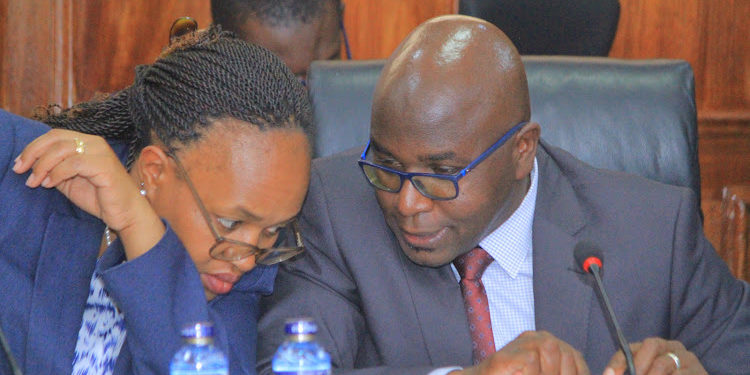Parliament has summoned the Kenya Revenue Authority (KRA) Commissioner General Humphrey Wattanga after skipping its invitations for the 14th consecutive time over queries on whether the agency has met the ethnic composition requirement for its staff.
“This is the 14th consecutive time that the Commissioner General has snubbed our invitations. We are not going to listen to you or extend another invitation. We will issue summons,” Adan Haji, who chairs the committee said.
“He has to adduce evidence in person on the ethnic diversity of the KRA. The Commissioner General appears to be passing the back to a junior officer which is unacceptable.”
However, In a letter to the committee dated February 16, KRA boss said he had received an invitation to attend a Cabinet retreat the week beginning February 19, 2024, in Naivasha.
“For this reason, I will be unavailable to attend the meeting as planned,” he said in his letter to the Clerk of the National Assembly, Samuel Njoroge.
“Therefore, I wish to be represented by Nancy Ngetich, acting Commissioner of Corporate Support Services and Benson Kiruja, the Deputy Commissioner of Supply Chain Management who are well-versed with the matters at hand.”
Ng’etich told MPs that she was ready to make a presentation on behalf of Wattanga but could not take accountability at the level of the Commissioner General. The committee, however, said it wanted him to appear in person before members.
The committee aims to verify whether the Kenya Revenue Authority (KRA) has adhered to constitutional provisions stating that no more than one-third of the workforce in a public entity should be from a single ethnic community.
In 2019, the KRA disclosed that management roles within the organization were predominantly held by individuals from Central Kenya. The report revealed that the Central region had 50 or 37.59% of the management job despite accounting for 17.33% of Kenya’s population.
At the time, the region also accounted for 29.69% of the middle-level staff management, underlining the disparities in the ethnic composition of the civil service and State-owned agencies.
The diversity policy for State Ministries, Departments, and Agencies (MDAs), introduced by the Public Service Commission (PSC) in December 2015, addresses the issue of over-representation by ethnic groups whose job presence exceeds their proportion in the national population.
The diversity policy was expected to tackle the problem of over-representation by setting hiring quotas for ethnic groups and disadvantaged classes such as the disabled.














